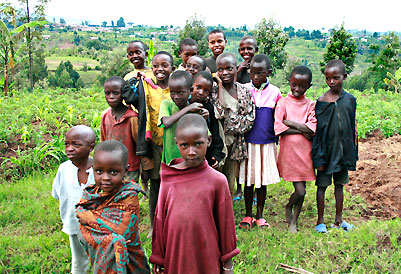Posts Tagged ‘Burundi crisis’
TFF PressInfo # 320 – Burundi: Denying or hoping won’t do
By Jan Oberg
Virtually everyone with an expertise in humanitarian crisis has warned about the unfolding catastrophe these very days in Burundi – the head of UNHCR, former UN Humanitarian chief Jan Egeland, the UN Secretary-General and his envoy, the International Crisis Group, specialists on Burundi, human rights organisations such as Human Rights Watch, civil society organisations inside Burundi, etc. TFF did it in PressInfo 319 of April 29, 2015.
Everyone who cares will see all the red lamps and hear the alarm bells. We have a history of genocide in this country and neighbouring Rwanda just a few years ago. There is something to build our early warnings on. But who is listening? Who is taking action, serious political action?
There have been meetings in the capital Bujumbura, regional leaders, the UN Envoy and a US Ambassador have met with the president and put pressure, urged, expressed concern or appealed. Unfortunately, it seems to be a display of powerlessness and lack of real political will.
This tired diplomacy might even convince the Burundian president that he can safey continue his stubborn policies because – and that’s his advantage – the country called Burundi is of so little real interest to anyone that those who could do something turn their heads and pretend they just don’t see.
We may of course sit and wait. Hoping it will all miraculously be good again tomorrow. Here are some more or less realistic hopes: Read the rest of this entry »
TFF PressInfo 319 – Burundi: Early warning and violence prevention
By Jan Oberg
The world’s leading countries are busy with ongoing conflicts and wars in areas of strategic importance to them. Organisations that work with humanitarian issues and post-war healing have exhausted their capacities long ago. It’s repair work but it must be done.
So there is hardly any capacity in the world to do what would be much more productive: Prevention of violence (yes, not of conflict but of violence). For decades there has been talk of early warning – but if it works at all, there is little or no early listening and even less early action.
If it all worked as it ought to, the world would have a violence-prevention machinery in place and it would, these very days, plan what to do before a catastrophe descends upon a small, beautiful African country – poor, mal-developed and of no strategic significance to bigger powers. That is, it would do a genuine humanitarian intervention to save lives in time.
The world’s neglect of Burundi
Since the genocide in the two neighbouring countries, Rwanda has probably been mentioned 100 times when Burundi was mentioned 1. Rwanda got the diplomatic attention, the investments, the aid, the Hollywood movies and books. Annually when the world commemorated the genocide that took place in both countries, everybody talked about Rwanda as if Burundi didn’t exist. One reason apart from sheer ignorance is that ”only” 300.000 were killed in Burundi’s genocidal civil war while three times more in Rwanda. About Burundi’s civil war.
Every year the development aid given to Burundi was around or less than 50% of what donor countries had pledged. Today, the two capitals Bujumbura and Kigali are like two different worlds. The best the world has done for Burundi was the remarkable UN mission which, regrettably, the Burundian government always wanted somehow to get rid of.
It can be argued the consequences of this relative neglect by the world are now becoming visible.
Combine that with the last few days of rioting against President Nkurunziza’s extremely dangerous manoeuvring to be elected for a third term and you have a situation that may soon present itself as yet another major human tragedy the world failed to do anything about before it was too late.
With the accumulated experience from TFF’s projects in Burundi from 1999-2012*, I believe there are extremely strong reasons to produce not only lame, standard diplomatic statements but to take action to prevent a new catastrophe. Read the rest of this entry »

